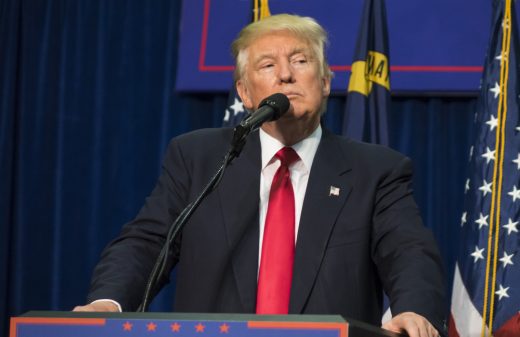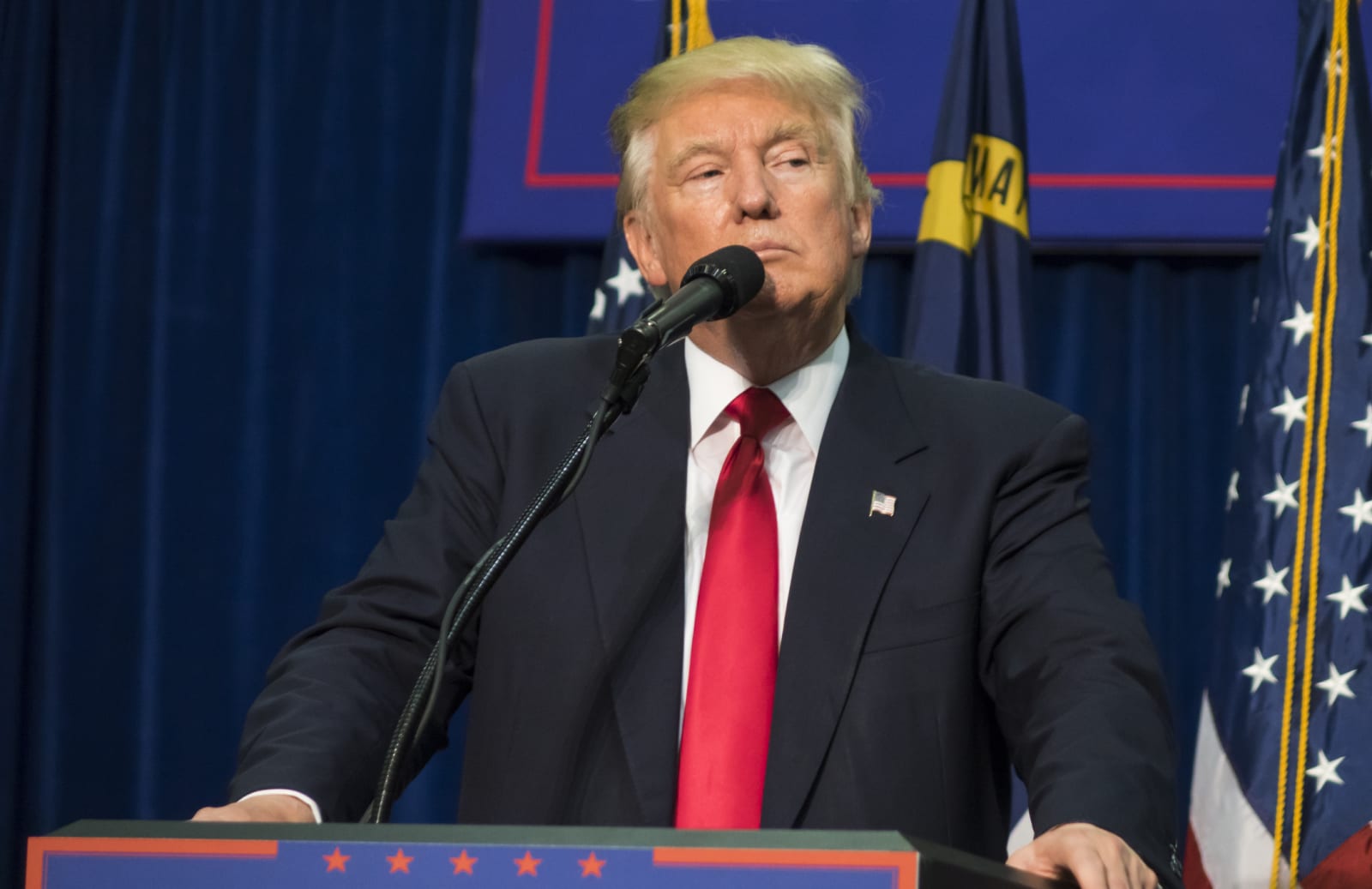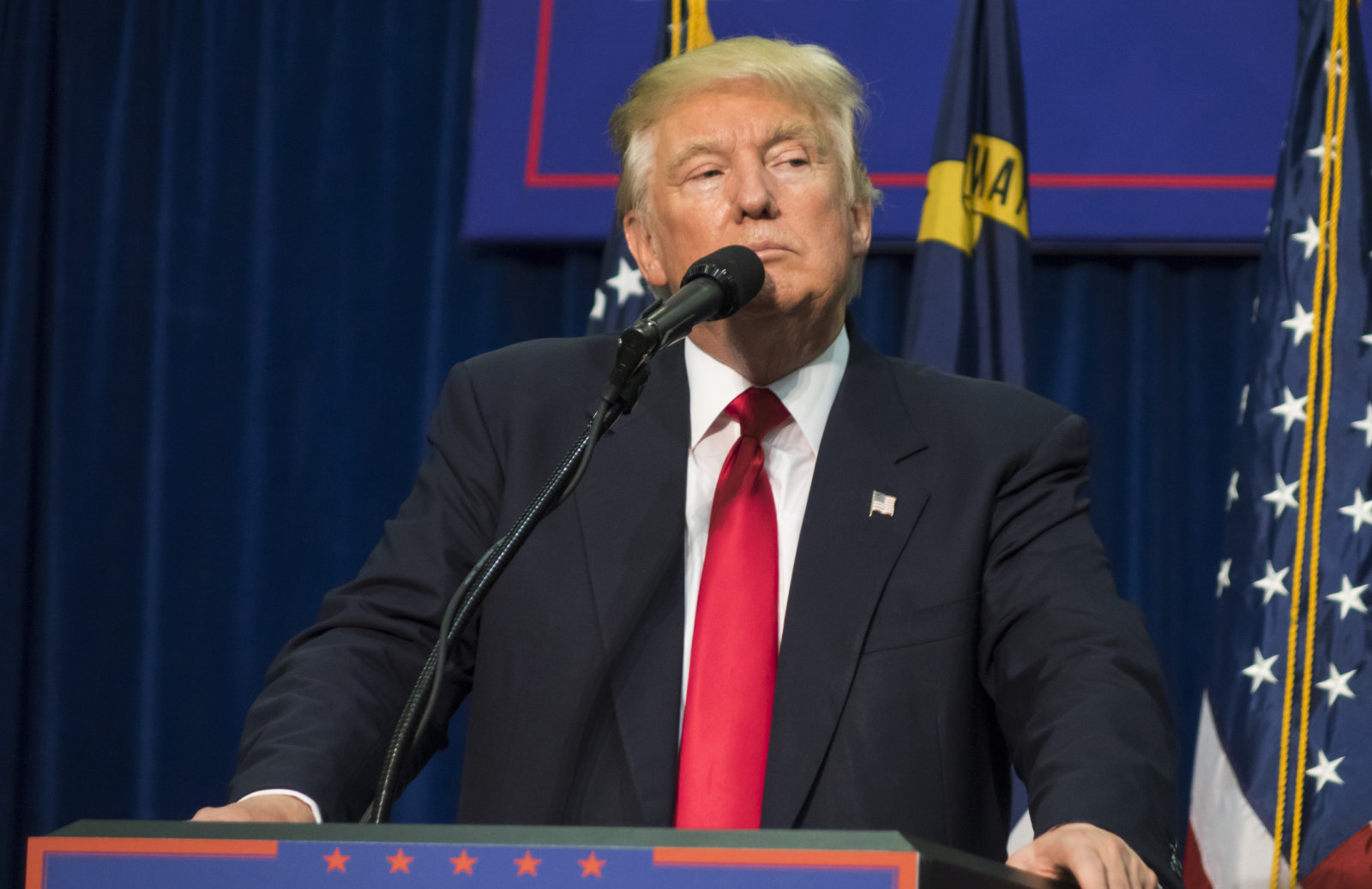The US tech industry will suffer if Trump tightens immigration laws
As Nov. 8th came to a close, and it became clear that America had elected Donald Trump as its next president, a familiar feeling crept over me. It was a deep sense of anxiety that arises every year or so as I begin preparing the documents I need to renew my work visa. I never know for sure if I’ll still be in the country next year, but I’ve never felt quite so unsure about whether I would be able to continue working here.
His real agenda on immigration is still unclear, but Trump has already said he’d make radical changes to classes of visa that the tech industry sorely needs. He recently nominated Alabama senator and known immigration opponent Jeff Sessions for attorney general. Trump also claimed at one of his campaign rallies in Florida that my countrymen (Singaporeans) are one of the people stealing American jobs, even though we are a tiny country with a really expensive workforce.
I’m not alone in my anxiety. Plenty of people in tech are worried the industry will suffer under Trump’s immigration policies. I spoke with some immigration experts to see if any of this alarm was warranted, and how much the tech industry would be affected by Trump’s presidency.
To be clear, this is mostly speculation based on what Trump and his campaign have publicly said. We have only seen his 10-point proposal that focuses heavily on keeping out and deporting immigrants with criminal records and those who are here illegally. The president-elect also recently released his 100-day plan that says he will call upon the Department of Labor to investigate visa programs, but not much is clear beyond that.
Besides his talk of building a wall along America’s southern border, Trump has flip-flopped on H-1B visas for temporary, highly skilled workers. This visa class requires candidates to be employed in a specialized industry, which typically means the science, tech, engineering and medical fields. Trump said during the debates that he would soften his position, recognizing the importance of keeping talent in the US, but later changed his stance, releasing a statement on his campaign website that indicated his intent to “end forever” the use of H-1B for cheaper labor.
The H-1B visa is contentious not only because Trump can’t seem to make up his mind, but because American employers, particularly tech companies, rely heavily on it when hiring. This visa category also came under fire last year when it was discovered that Disney was replacing American employees with H-1B workers, and making them train their replacements before leaving. But it’s not clear how widespread this problem is. Meanwhile, demand for this visa continues to grow, making it one of the most widely discussed immigration categories. Each year, the number of applicants far exceeds the visas available, and it’s impossible to tell which files will get picked for consideration.
Sixty-five percent of H-1B petitions approved in 2014 were for workers in computer-related occupations, according to the latest available US Citizenship and Immigration Services’ (USCIS) report to Congress. Each candidate must have a recognized bachelor’s degree, though more than half of the applicants in 2014 had additional qualifications as well. I filed an H-1B petition earlier this year and was one of the unlucky thousands who did not get picked for consideration, and so I’ll have to try again next year. (Meanwhile, I continue to work legally on a different visa.)
As it stands, the H-1B application process is already a real pain and a huge source of anxiety for anyone hoping to be employed in the US. And a lot of us are more than qualified for the jobs we are applying for. But as the threat of immigrant-unfriendly policies loom, many of us now fear that our future in the US is in jeopardy.
None of the lawyers I interviewed felt that the H-1B is at risk of being abolished altogether, which, to be fair, was never a real concern. My former immigration attorney, Michael Wildes, said he has no idea what Trump is going to do, but that he is “prayerful that [Trump] will use his business talent to make this useful for America.” Wildes believes that a lot of American employers really do need the H-1B, and that it is not at risk of being killed; it is just oversubscribed.
Wildes has good reason to be conservative here. He was recently hired by Melania Trump to review her immigration records after allegations arose that she worked illegally in the US in 1995. His company also represents Trump Models and files H-1B3 petitions for the foreign individuals in that organization to work in the US during events such as Fashion Week. That alone could be reason for Trump to keep the category open, said Greg Siskind, a shareholder with immigration law firm Siskind Susser PC and author of several books on immigration law.
“Trump has used the H-1B visa and other visas many times over the years for his own businesses, so it would surprise me if he doesn’t see the value in maintaining it,” said Siskind.
In fact, Siskind says the category is somewhat protected by global law. “It is protected to an extent by the General Agreement on Trade in Services, which is a global treaty,” he said. “It requires us to provide at least 65,000 H-1B visas a year, and if we ever attempted to scrap the category and close the border, we would likely find ourselves in international trade court.”
Still, changes to H-1B are likely. Ali Noorani, executive director of the National Immigration Forum, says that Trump’s call for the DOL to investigate visa programs is a “very clear sign to the community that uses H-1B that AG Jeff Sessions is coming after them.” He believes that there is significant reason to worry that the Labor and Justice departments will attempt to move forward on these investigations, “whether or not they’re deserved.”
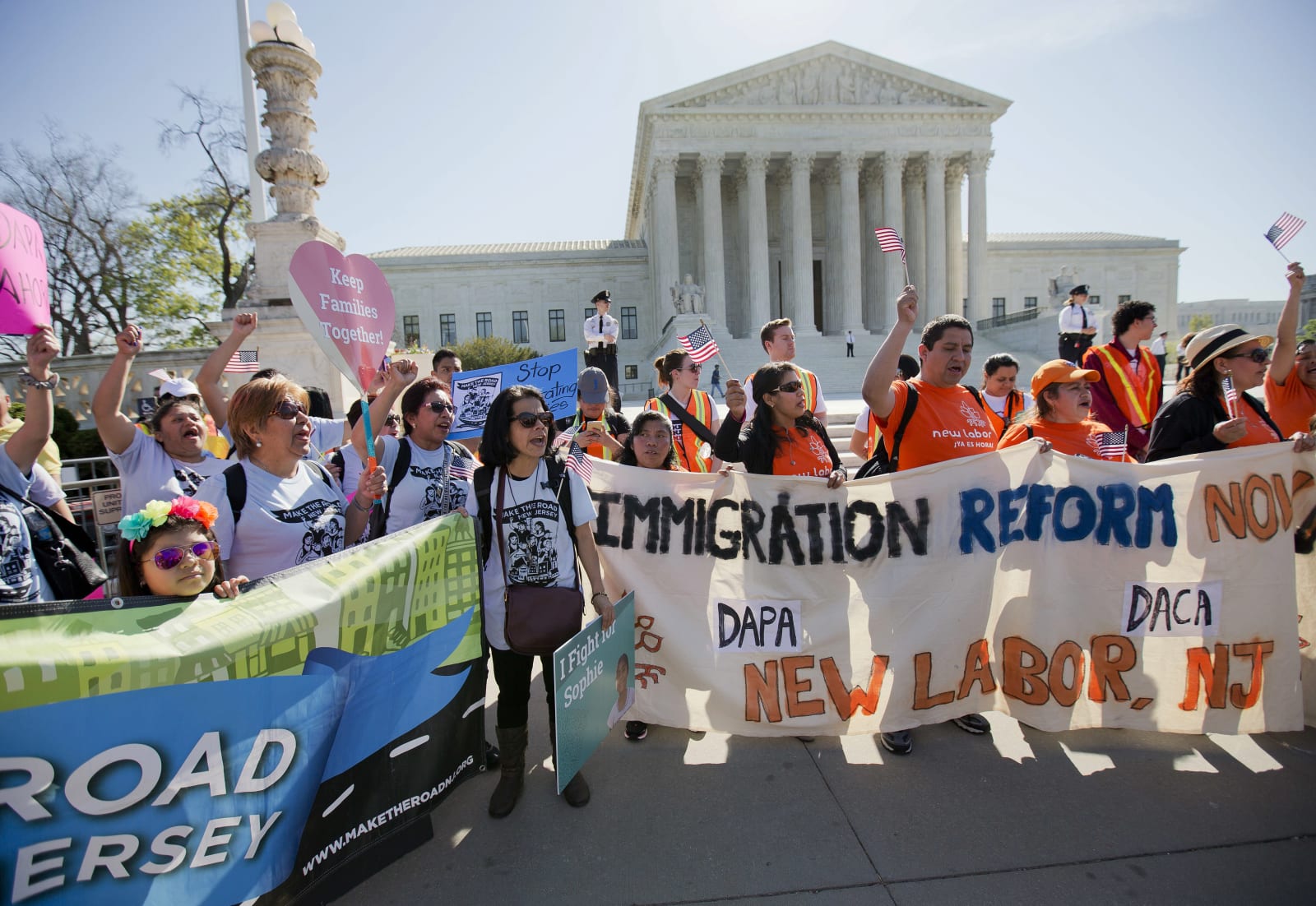
Some experts feel that these changes might make it harder to qualify for the H-1B. Ari Ambrose, who is counsel to Daniel Aharoni & Partners LLP, expects that the Trump administration “will tighten the rules, and perhaps require that employers search for US workers before offering a position to an H-1B employee.”
This method is already used in the so-called PERM (Program Electronic Review Management) step of the employment-based green card process, where employers have to prove that they have tried to hire an American worker for the same job and could not find an equivalent candidate, before giving a foreign worker a green card.
Siskind also expects to see changes that would make laying off an American worker tougher. “I would expect to see support for tougher anti-layoff provisions,” he said, “as well as a ranking system to allocate H-1Bs based on such things as how much a worker will be paid, how highly educated the worker is [and] whether they obtained a degree in the US.”
If these changes are carried out, the process of hiring such a worker would become even more complicated than it already is. There is a small ray of hope that Trump’s administration will face some difficulty within his party, though, and that might help soften the blow of potential changes to the H-1B program. However, their intentions may not necessarily be noble. Daniel Costa, director of immigration law and policy research at the Economic Policy Institute, believes that the business wing of the Republican party and business lobbies like the Chamber of Commerce will push back on proposed changes.
“A high priority for them is the ability to hire workers on these temporary visas — where the workers are often indentured because they can’t easily switch employers, and they are often underpaid compared to similarly situated American workers because laws and regulations allow it, and/or because of a lack of enforcement,” Costa said.
That disturbing detail, along with the Disney case, suggests that there are good reasons to investigate the H-1B program and whether it’s being abused. Costa believes the Trump administration could reinterpret the H-1B statute in a way that makes it more difficult for companies to do so. Siskind agrees, and said organizations using the same foreign-based staffing system as in that Disney case will face the most pressure.
Other visa classes appear to be even more vulnerable. According to Wildes, the visa that’s most likely at risk is the TN NAFTA professionals classification for Canadian and Mexican workers. Trump has in the past called NAFTA the “worst trade deal maybe ever signed anywhere,” and is looking to make big changes to the treaty.
Most of his proposed alterations appear to be around imposing taxes, manipulating currency and country of origin labeling, so it’s not clear yet just how much this visa class will be affected. If it does get abolished, though, the impact will be borne mostly by industries and geographical regions (i.e., the South) that depend on Mexican and Canadian workers. These people are scattered across various industries, and thus, you’re probably not going to see someone like Mark Zuckerberg take a stand against changes to this classification, because the tech industry isn’t as reliant on this visa as it is on the H-1B.
Another group of people likely to be affected are the 750,000 or so who were recently allowed to work legally under the Deferred Action Childhood Arrivals (DACA, or Dream Act) program and are possibly in danger of seeing their status revoked. Indeed, Trump has promised to “immediately terminate” DACA, a move that would not only jeopardize the livelihoods of these immigrants but put them at risk of deportation, Ambrose said.
According to a recently published report by the Center for American Progress, ending the DACA program would “would wipe away at least $433.4 billion from the U.S. gross domestic product, or GDP, cumulatively over a decade.” Noorani believes the impact of a DACA reversal on the tech community, in particular, would be dramatic.
“My sense is that there are probably more companies than we realize that have DACA recipients working for them,” Noorani said. “A lot of these people have programming, design skills that companies are thrilled to have within their four walls.”
Noorani also reminded me of the more personal impact on Americans should there be a loss of immigrants in the workforce. “Everybody working in these offices is going to face the reality of their colleagues suddenly being out of work. What’s the impact on that team?” He added, “People like each other. It’s not just about the impact on the bottom line or what the CEO’s perspective is. This is about real people that we all work with all of a sudden being gone.”
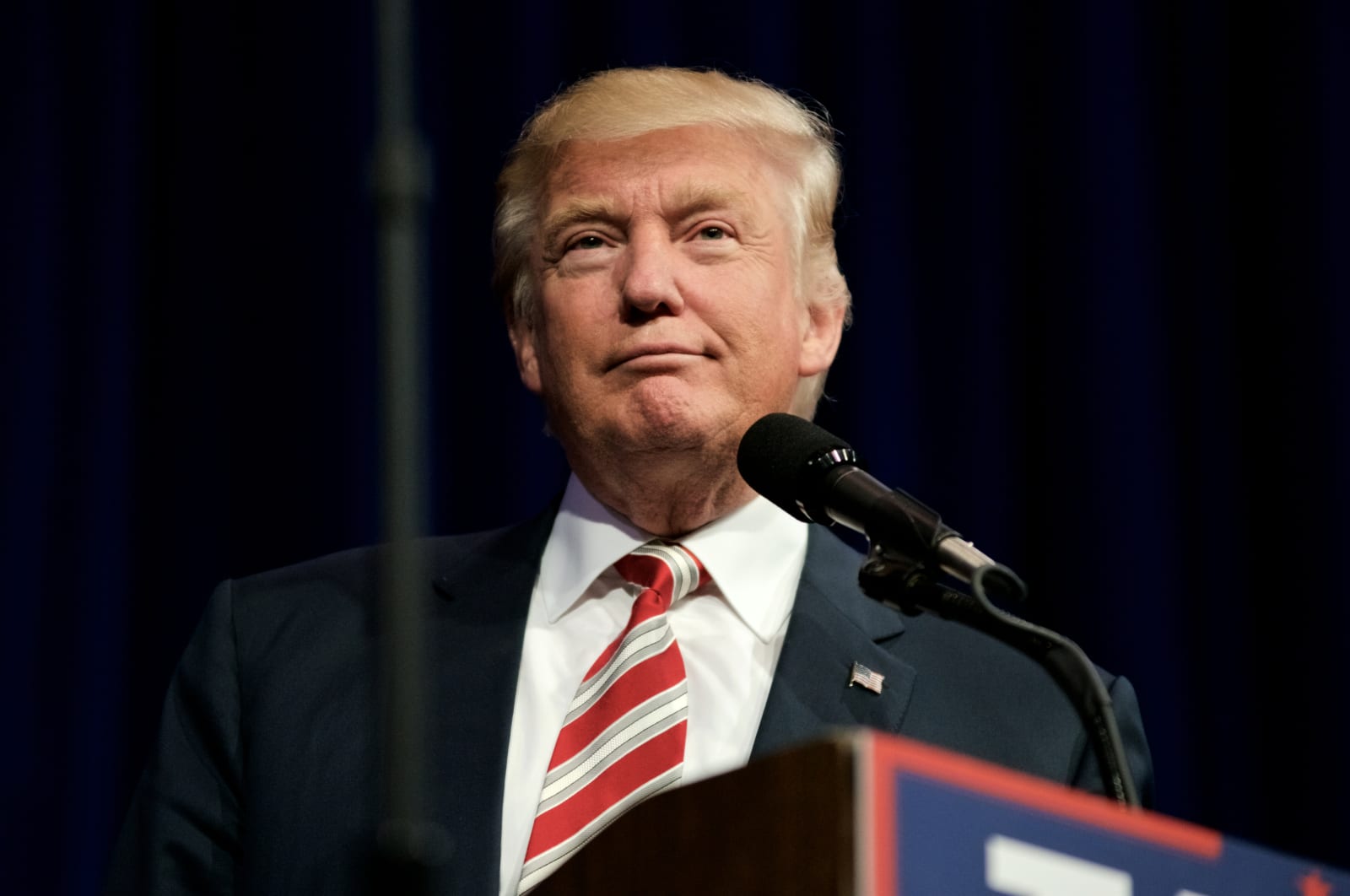
Whether you or your colleague have one of the visas mentioned in this article, the future is uncertain. Ambrose brought up a particularly depressing point about the future of all immigration in the US. “All of the agencies that handle immigration matters, whether it be USCIS, CBP, Department of State, etc., will soon be headed by people who are, to put it mildly, hostile to immigrants. It’s safe to assume that all visa categories are at risk,” he said.
Siskind agrees. He said he believes that if Trump pursues a “time out” on issuing temporary and permanent visas, as has been suggested by Sessions and the immigration transition team’s Kris Kobach, many in Trump’s party, as well as most Democrats, would readily go along. “That would be truly disastrous for the economy and would put many industries in a tailspin,” Siskind said. “Tech is an obvious one, but everything in this country — from construction to agriculture to our universities to hospitality to health care — depends on immigrant labor.”
Ambrose believes the impact of these policies would go far beyond business. “It’s hard to imagine people will choose to live, work, study or visit a country that denigrates immigrants,” he said.
(26)

